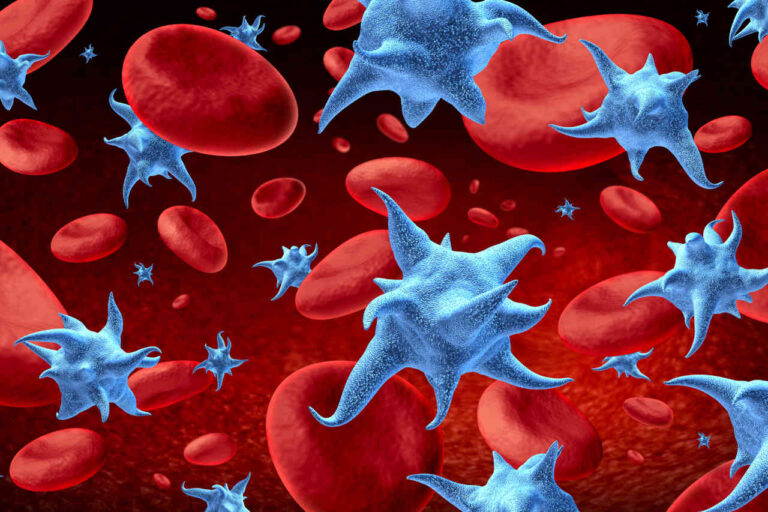
Enbrel (etanercept) is a prescription medication used to treat specific autoimmune disorders affecting the joints and skin. In an autoimmune disorder, a person’s immune system mistakingly attacks healthy tissues because it thinks they’re foreign particles.
Other brands (called biosimilars) that are equivalent to the brand Enbrel in terms of use, dosage, strength, preparation, and method of use are:
- Erelzi (etanercept-szzs)
- Eticovo (etanercept-ykro)
No generic versions are currently available.
How Does Enbrel Work?
Enbrel belongs to a drug class called tumor necrosis factor (TNF) blockers or anti-TNF agents. TNF is a protein produced by white blood cells (cells of your immune system) that helps with activating the immune system. By blocking the actions of TNF, Enbrel lowers inflammation caused by your immune system, which helps to treat symptoms of several autoimmune problems.
What Is Enbrel Used To Treat?
Adults
The FDA has approved this medication to reduce the signs and symptoms of the following conditions in adults:
- Rheumatoid arthritis (RA): RA causes painful, swollen, and stiff joints. For RA, your provider may prescribe Enbrel alone or with methotrexate.
- Ankylosing spondylitis: Ankylosing spondylitis is a type of arthritis that affects the spine.
- Psoriatic arthritis: Psoriatic arthritis can affect some people who have psoriasis (long-lasting patches on the skin). Your provider may prescribe Enbrel alone or with methotrexate.
- Plaque psoriasis: Plaque psoriasis causes scaly and itchy skin patches (plaques).
Children 2 years and older
- Juvenile idiopathic arthritis (JIA): Enbrel may be used in moderately to severely active JIA to improve the signs and symptoms.
Children 4 years and older
- Chronic plaque psoriasis: Plaque psoriasis causes scaly and itchy skin patches (plaques).
What Is the Dose of Enbrel?
Adults
- Rheumatoid arthritis, ankylosing spondylitis, and psoriatic arthritis: 50 mg injected under the skin once per week.
- Plaque psoriasis: 50 mg injected under the skin twice per week for 3 months, then 50 mg once per week.
Children
- Plaque psoriasis or juvenile idiopathic arthritis: 0.8 mg/kg (maximum 50 mg) injected under the skin once per week.
What Are the Side Effects of Enbrel?
Common side effects
- Infections
- Injection site reactions (e.g., redness or pain at the injection site)
- Rash
- Itchy skin
- Fever
- Diarrhea
Talk to your provider or pharmacist if any of these side effects worsen or persist.
Serious side effects
Though rare, side effects can sometimes be life-threatening. Call your provider immediately or seek emergency medical help if you have any of the following:
- New or worsening neurologic reactions: Symptoms can include seizures, confusion, memory loss, disorientation, vision changes or loss, and extreme tiredness.
- Blood disorders: Pancytopenia (low levels of blood cells) and aplastic anemia (where the bone marrow fails to produce enough new blood cells) have been reported in some users. Symptoms can include persistent fever, bruising, and bleeding.
- Autoimmune reactions: Some users may develop lupus-like syndrome or autoimmune hepatitis. Symptoms can include muscle pain, joint pain, and flu-like symptoms.
- New or worsening psoriasis: Symptoms include new scaly patches on the skin.
- Serious infections: Serious infections may develop due to a weakened immune system. Examples include tuberculosis, invasive fungal infections, and blood poisoning (sepsis). Talk to your provider if you have any signs of an infection (e.g., chills, fever, dizziness, lightheadedness, low appetite).
- Certain cancers: Enbrel may make you more likely to get blood and skin cancers. Talk to your provider if you notice any changes in your skin.
- New or worsening heart disease: Careful monitoring during therapy is essential if you have a heart condition.
- Hepatitis B reactivation: In some people with a history of hepatitis B, using Enbrel may reactivate the infection. The risk is higher if you take other immunosuppressants with this medication. Your provider will likely screen you for hepatitis B before and throughout treatment with Enbrel.
- Interaction with vaccines: Don’t get vaccinated with live vaccines while taking this medication because it’s possible you can get sick from the vaccines.
Allergic reactions
Seek emergency medical help if you experience the following:
- Chest pain
- Hives
- Shortness of breath
- High or low blood pressure
- Fever
- Chills
Use in Pregnancy and Breastfeeding Females
Most studies have failed to find an association between Enbrel use during pregnancy and a higher risk of birth defects. Nonetheless, tell your provider if you are pregnant or plan to become pregnant.
Also, if you used Enbrel during pregnancy, talk to your doctor before administering live vaccines to your child.
Additionally, this medication can pass into breast milk, but the amount is very low. Thus, it’s possible it might be safe to breastfeed while taking Enbrel, but make sure to talk to your provider first before breastfeeding to discuss the risks and benefits of doing so.
How Is Enbrel Supplied and Used?
Enbrel comes in different injectable options:
- AutoTouch Connect Autoinjector: You can use this device for at-home administration only after receiving proper training on how to inject the drug. In addition, use the reusable autoinjector only with the Enbrel Mini single-dose prefilled cartridge. Each prefilled cartridge contains 50 mg/ml of the active drug. The AutoTouch Connect feature allows you to track injections in the Embark app via Bluetooth.
- Enbrel Mini Cartridge With AutoTouch Autoinjector. This device works the same way as the AutoTouch Connect Autoinjector, but doesn’t have the Bluetooth connectivity feature.
- SureClick Autoinjector. This device injects 50 mg of the medication (the active drug) under your skin (subcutaneous route).
- Prefilled Syringe. A single-dose prefilled syringe contains 25 mg/0.5 ml or 50 mg/ml of the active drug.
- Single-Dose Vial for Injection. A single-dose vial contains 25 mg/0.5 ml of the active drug.
- Multiple-Dose Vial for Injection. The content of the multiple-dose vial should be mixed with the provided liquid to make a 25 mg/1 ml solution of the active drug.
Proper Use, Storage, and Disposal
- The autoinjectors, prefilled syringes, and single-dose vials do not need to be mixed or prepared before administration.
- Your provider will likely give you your first few doses in their office. Then, once you’re properly trained on how to inject the medication, you can give yourself injections at home.
- The medication is injected under the skin of your thigh or the outer region of your upper arm. Rotate the injection sites each time you administer Enbrel to avoid pain. Avoid injecting into bruised, red, or inflamed sites, so you don’t get any pain or further damage to your skin.
- Store Enbrel in the refrigerator (36°F to 46°F) in the original carton to protect it from light. Avoid freezing and shaking.
- Allow Enbrel autoinjectors, prefilled syringes, and vials to reach room temperature before injecting. This will take about 30 minutes. Don’t try to warm up the medication any other way (e.g., microwave, placing it in the sun) because this could damage the medication.
- If you are using multiple-dose vials, use the reconstituted solution immediately or refrigerate for up to 14 days.
- If you are using the SureClick autoinjector or AutoTouch device, administer the medication within 5 minutes after removing the syringe cap.
- Follow the expiration date that’s on the label.
- Dispose of used syringes and autoinjectors in a sharps container or something strong, like an old milk carton, immediately after use. Don’t reuse them or throw them in the regular trash because this could cause needlestick injuries to others. Click here to learn more about sharps disposal in your state.
How Much Does Enbrel Cost?
Cost can vary depending on your insurance plan, location, and pharmacy. Contact your insurance provider to find out if your plan covers Enbrel or if you need prior authorization.
If your insurance plan covers Enbrel, you may be eligible for a copay program offered by Amgen, which makes Enbrel.
If your plan does not cover this medication, you can apply to Amgen Safety Net Foundation.













